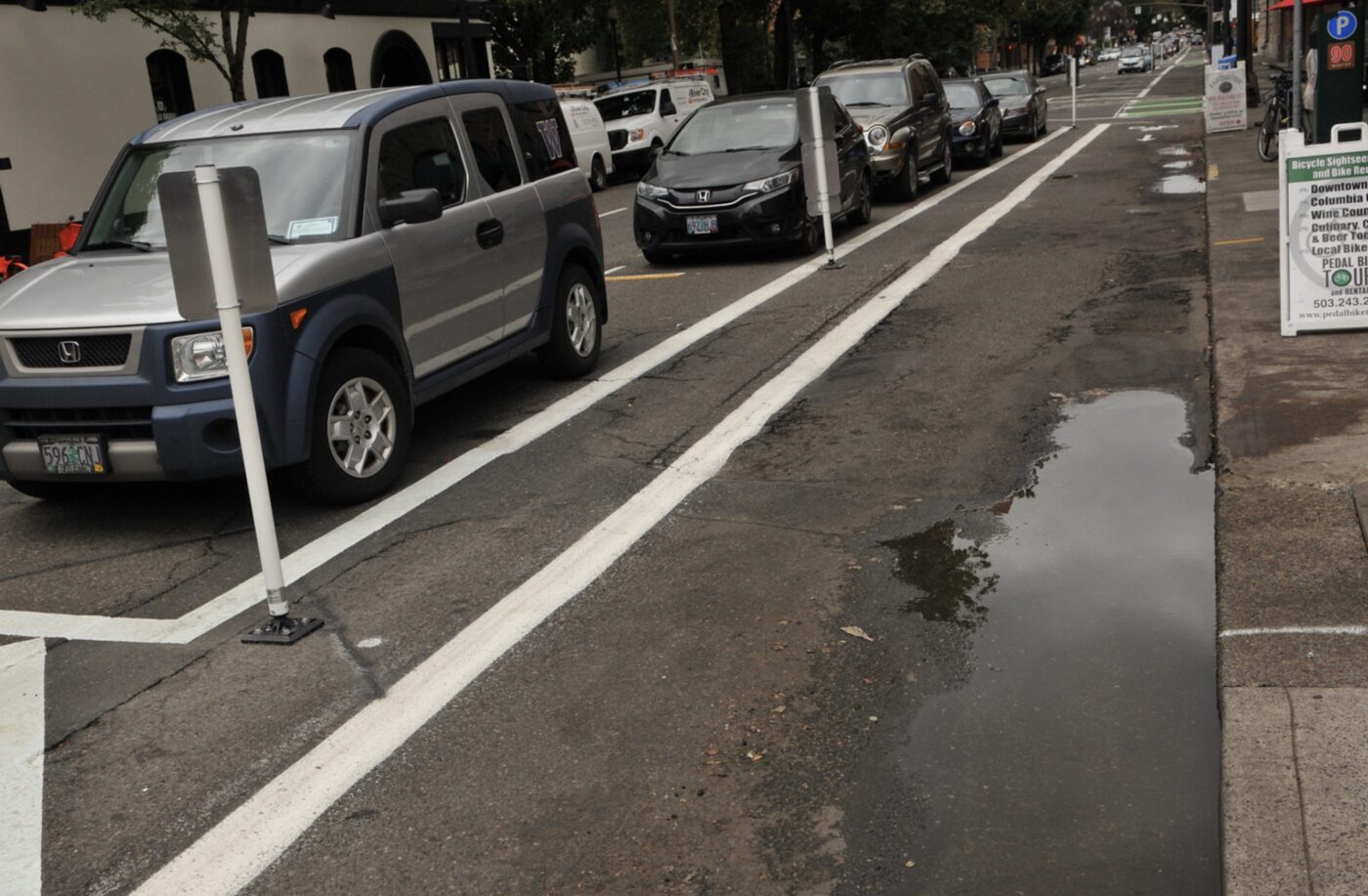The Oregon law that requires bicycle riders to use a bike lane when one is present has been a thorn in the saddle of advocates for a long time. Now a group has come together to repeal the law and they’ve made significant progress toward their goal.
ORS 814.420 “Failure to use a bicycle lane or path” says that when a road is striped with a bike lane, a person on a bicycle must use it. There are a list of exceptions, such as to avoid a hazard or to make a left turn; but most people — including many police officers — aren’t aware of them.
The ignorance of these exceptions and confusion around this law (also known as a “mandatory sidepath law”) mixed with a bit of anti-cyclist bias, can lead to road rage from drivers and/or unfair treatment by police. According to the League of American Bicyclists, the law “does nothing to benefit bicyclists and should be fought at every level.” The League specifically called out ORS 814.420 in 2014 as one of the reasons our Bike Friendly State ranking dropped a few notches. In 2010, the nonprofit Street Trust had a repeal of the law on their legislative agenda.
Since then, we’ve seen how the law can harm Oregonians.
In 2013 we shared the story of a Medford man who was stopped by a police officer and cited for violation of the law. The rider said he was avoiding glass and other debris. A judge ultimately dismissed the case.
And this past December, a Portland woman was given a citation for not using the bike lane on SW 2nd Avenue. Despite her daily use of the route and knowledge of the bike lane’s hazards, the existence of exceptions in the law, and the fact that she was no threat to any other road users, the police officer still wrote her up.
That woman has since become a key volunteer with a group calling themselves the Safe Lane Coalition. They’ve begun a process to repeal the law at the Oregon Legislature and they plan to introduce the measure in the 2024 legislative session.
The group had their first meeting in the BikePortland Shed back in March and has met monthly since then. It is led by Vivek Jeevan, an active volunteer with BikeLoud PDX and a League of American Bicyclists certified safety education instructor. Before moving to Portland, Jeevan founded a nonprofit in Corvallis dedicated to traffic law education with a focus on vulnerable road users.
The Safe Lane Coalition has also enlisted the help of several lawyers, a former legislative director of The Street Trust (Doug Parrow, who wrote the bicycle safe passing bill that became law this past session), and has already received commitments of support from two Oregon lawmakers. One of them, House Representative Tom Andersen (D-Salem) plans to be chief sponsor of the forthcoming bill.
For the past three months, Jeevan and other Safe Lane Coalition volunteers have been working to polish verbiage, create a new website, and reach out to other bike groups across the state to grow the coalition.
As a traffic law educator, Jeevan feels Oregonians would be better off if this law was repealed. “Having a law that mandates bicyclists use facilities prevents cyclists from using their reasonable judgment to go around hazards,” he told BikePortland in an interview last month. “We should not be forcing cyclists into bad positions.”
And when bicycle riders do leave a bike lane for a legitimate reason, Jeevan says it’s often as car drivers or even police officers as antagonistic. Jeevan himself was pulled over for it. “I was planning to make a left turn and was merging over, and the officer didn’t like seeing a bicyclist in the traffic lane,” he recalled to me about the incident, saying that unnecessary police interactions and selective enforcement are a major source of concern.
And don’t think folks like Jeevan and the other advocates working on this are anti-bike lanes.
“It’s not that we don’t like bike lanes. We’re all working to build great bike infrastructure,” he said. “We just need the clear ability to go around hazards when they come up.”
Stay tuned for more on this effort.




